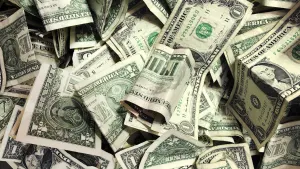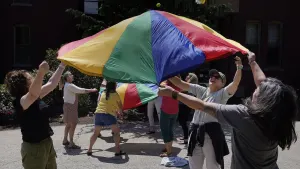More Stories
The first coronavirus vaccine was administered in New Jersey this morning, at University Hospital in Newark.
In Connecticut, just nine months and one day after Hartford Hospital admitted its first COVID-19 patient, it administered the state's first coronavirus vaccine to a member of its staff.
And the first COVID-19 vaccine given in the country happend in New York Monday. According to Gov. Andrew Cuomo, 10,000 of New York's health care workers received the vaccine on the first day.
Right now, hundreds of thousands additional health care workers, and nursing home staffers are waiting to get their vaccines.
This morning, the staff of the FDA endorsed the emergency use of Moderna's coronavirus vaccine in a report released. It's a critical step forward in winning formal clearance.
The review confirmed that the shot is about 95% effective in preventing the virus, was safe and appeared to fend off severe disease. It comes two days before an FDA panel is scheduled to review Moderna's vaccine.
The group recommended Pfizer's vaccine for emergency use last Thursday, and the FDA approved it for emergency use the next day. The government has pre-ordered 100 million doses of Moderna's vaccine. If it gets FDA approval, Moderna says 20 million of those doses will be delivered within the next couple of weeks.
This is hopefully a turning point in our battle against the virus-- that we are now seeing surge again in our area- On Monday, the nation's death toll surpassed 300,000 people, according to tracking data from Johns Hopkins University.
More than 16 million Americans have been infected with COVID-19 since the pandemic began. And hospitalizations are once again sky-rocketing.
New 12's Elizabeth Hashagen was joined by Dr. Hugh Cassere this morning to talk about what it is like in our hospitals right now, and to answer viewer questions. Dr. Cassere is the chief of the division of critical care medicine at Northwell Health.
Has the arrival, and administration of a vaccine changed the feeling in hospitals?
Trial results have shown that the shots frequently produce side effects that, while not debilitating, could cause symptoms that might keep someone home for a day or two, such as fever, muscle aches or fatigue.
The swift rollout of the vaccine promises to be a monumental logistical challenge. New Jersey health commissioner says they will receive three shipments of the Pfizer vaccine this month, beginning with about 76,000 doses this week and another 86,000 next week.
If the Moderna vaccine is given emergency authorization later this week by the Food and Drug Administration, New Jersey could get about 150,000 doses by early next week and 65,000 in a second shipment.
Top health officials are warning that daily new deaths might not slow for months, even with a vaccine.The number of hospitalizations has surpassed the 100,000 mark every day for the last two weeks with the seven-day rolling average of patients now at 107,856 in our country.
Here are the tri-state numbers:
3,635 in hospital 10.95 % (NJ)
5,712 in Hospital 5.66% (NY)
1,243 in hospital 6.08 % (CT)
3,635 in hospital 10.95 % (NJ)
5,712 in Hospital 5.66% (NY)
1,243 in hospital 6.08 % (CT)
Dr. Cassere talks about what it's like inside hospitals with the increasing numbers in the video below.
Also, something to pay attention to in New Jersey, Gov. Murphy reported more than 700 coronavirus patients were in hospital intensive care units at last count in the state, the first time that number had been surpassed since late May.
Viruses do mutate - that's the nature of viruses. But today we are starting to hear about more than 1,000 cases of a new variant of the coronavirus. The British health secretary says they've identified the new variant mainly in southeast England, but it is be with a rapid rise in infection levels.
Dr. Cassere discusses if we should be concerned about the new variant and mutations below.
More from News 12
1:28

5 simple steps for long-term benefits to your health and heart
1:32

8 tips for working safely during hot weather
3:31

Guide: Ways to set your child up for financial success
3:18

Guide: The importance of good sleep and how to get it

Guide: Mental health resources available in the tri-state
9:36
